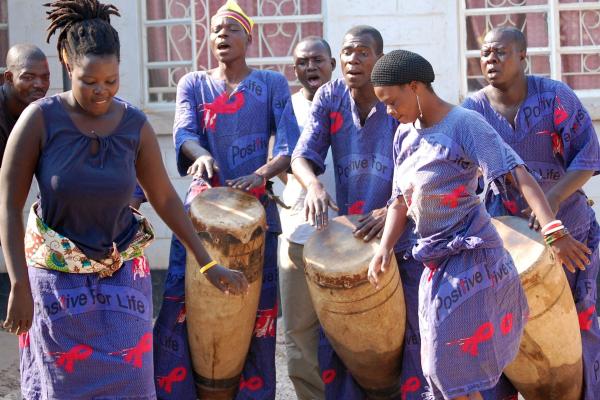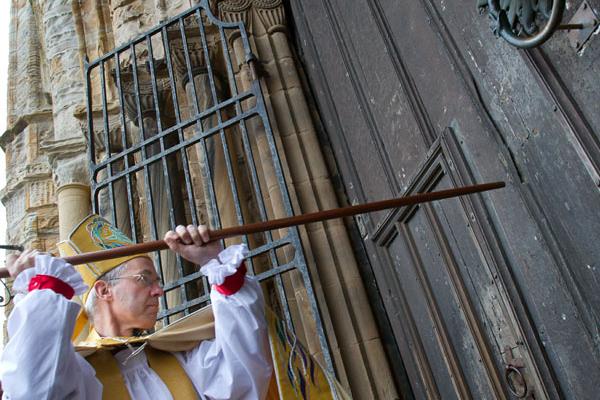As people of faith, it is not uncommon to pray for miracles when faced with overwhelming obstacles. For many of us, AIDS has been one of those mind-boggling, heart-wrenching causes that has wreaked havoc on the world and been the subject of many prayers.
Since the early days of the disease, the focus has been on a cure. Researchers worked tirelessly for it and the faithful asked God to provide it. But the cure has never come.
And yet, as we mark another AIDS Day this Saturday, Dec. 1, there is evidence of the miraculous.
After 24 years of commemorating this day with grim statistics and little hope, there is finally good news.
Millions of people are receiving treatment. Many fewer people are dying.
The new infection rate has dropped by 50 percent or more in 25 countries since 2001. With access to treatment, being HIV-positive is now considered a chronic disease, not a fatal one.
NEW YORK — In the afterglow, I give thanks for Thanksgiving Day.
It might be our most spiritual holiday, dealing as it does with that most spiritual of experiences: feeling gratitude.
Despite the commercial drumbeat for the aptly named "Black Friday," Thanksgiving Day itself tends to be about family, food, and free time. On Facebook, people shared recipes for stuffing, answered questions posed by nervous first-time cooks, told stories about traveling to be with family, and flooded the web with photos of people just being together.
I realize that those are ambiguous realities. Not everyone is blessed with healthy families, not everyone has enough food. Many work hard to prepare food and cheer for others to enjoy. But the promise is there — and unlike the promise of material hyperabundance that has come to dominate Christmas, the promise of Thanksgiving Day seems worth pursuing and attainable.
The book of Jeremiah straddles the most momentous event of Israel’s history: the destruction of Jerusalem and its temple and the exile of its leaders to Babylon (586 B.C.E.). In the first half of the book of Jeremiah, the prophet announces that God is furious with the people of Judah, in particular its leaders, because they have reneged on the covenant they made with God through Moses. They have not taken care of the poor, and they have not lived according to the stringent demands to worship God alone.
Not surprisingly, the leaders do not want to hear Jeremiah’s critiques of their ways of doing business. No politician wants to look weak – even before a god. According to Jeremiah, the leaders of Judah have prioritized – not the building of an ethical community – but their own comfort and position. Their desire to maintain their own power and influence has trumped everything. And these politicians have justified their behavior so many times and in so many ways, they don’t even recognize how far they have fallen from the ideal that guided the building of the nation.
On Nov. 29, Palestinians will bid to become a “non-member observer state” in the United Nations. If approved, this would be a major step toward full statehood for Palestinians. Israel, and perhaps more important, the United States, are against this move, not least for fear of possible war-crime investigations against Israel. Israel’s rationale has always been that a final resolution cannot be achieved unilaterally, but only through direct negotiations. Ironically, Israel achieved its own independence unilaterally and through the United Nations.
Palestinian Christians leaders have sent a strong message of support for this step. A statement signed by 100 community leader says:
We believe the Palestine Liberation Organization’s initiative to enhance Palestine’s status in the United Nations to an Observer State is a positive, collective, and moral step that will get us closer to freedom. This is a step in the right direction for the cause of a just peace in the region. We fully endorse this bid, just as we supported Palestine’s application for full membership of the United Nations a year ago.
Presidents, government ministers and religious leaders from around the world gathered in Vienna on Monday Nov. 26 for the gala launch of the King Abdullah Center for Interreligious and Intercultural Dialogue.
While Austria and Spain joined Saudi Arabia in establishing the center, it originated in a bold initiative by Saudi King Abdullah. Some years ago, the king convened representatives from all segments of the Muslim world in Mecca to support his call for Islam to engage the other world religions in addressing the social, scientific, and global challenges of our times.
He followed this up with an interfaith conference in Madrid co-hosted with King Juan Carlos of Spain and subsequently brought his initiative to the United Nations in 2008, hosting a gathering of world political leaders that included Israeli President Shimon Peres.
Another star of the CBS sitcom “Two and a Half Men” has gone rogue — but in a decidedly different direction than notorious carouser Charlie Sheen.
Actor Angus T. Jones — the “half” in the sitcom’s title — says in a new online testimony that he’s become a Seventh-day Adventist and loathes the “filth” produced by his raunchy show.
“You cannot be a true God-fearing person and be on a television show like that,” says Jones, 19, in a video posted online by Forerunner Chronicles. “I know I can’t. I’m not OK with what I’m learning, what the Bible says, and being on that television show.”
“Please stop watching it,” says Jones, who reportedly earns $350,000 per episode and has starred in the show since he was 10. “Please stop filling your head with filth.”
CANTERBURY, England — When the Church of England scuttled plans to allow women bishops on Nov. 20, incoming Archbishop of Canterbury Justin Welby called it “a very grim day for women and their supporters.”
Now, that grim day is turning into a church-state nightmare for Britain's established church.
On Monday, The Times of London quoted from a leaked memo to church leaders from William Fittall, secretary general of the General Synod, who called the public and political fallout "severe."





